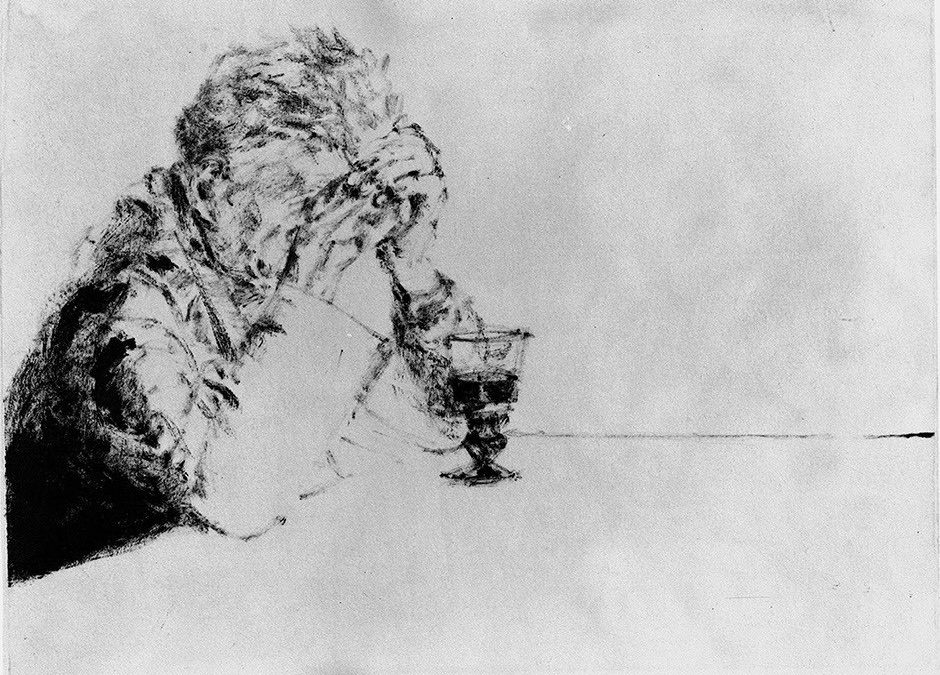Time and details in Beckett’s Malone Dies are contradictory and often obscure. Events of the narrative are confusing, especially as it reaches a bloody climax that ends when Malone hacks six to death at a picnic. The picnic is narrated by the protagonist Malone (sometimes known as Lemuel), who remembers (more or less) the day he (or Lemuel) turned the picnic topsy-turvy from his deathbed in St. John’s, a medical hospital (or psychiatric) asylum.
As Malone relives it, he (or Lemuel) attended a picnic by the institution’s benefactor Lady Pedal, who has organized a picnic on Easter Sunday to an island where they expect to visit Druid ruins. “Nous allons chercher un endroit pour pique-niquer” (let’s find a place to picnic), she says.”*
But once debarked and before they enjoy the picnic lunch, Malone (or Lemuel) methodically murders everyone. When he’s done (I’ve omitted the details), he packs the bodies into the boat and sets out across the lake. His narrative unspools Malone’s idiosyncratic syntax is a concoction of shifting details and murky imagery. At first, words come rushing:
“This tangle of grey bodies is they. Silent, dim, perhaps clinging to one another, their heads buried in their cloaks, they lie together in a heap, in the night. They are far out in the bay. Lemuel has shipped his oars, the oars trail in the water.”
As darkness increases, Malone continues, “The night is strewn with absurd lights, the stars, the beacons, the buoys, the lights of earth and in the hills the faint fires of the blazing gorse. Macmann, my last, my possessions, I remember, he is there too, perhaps he sleeps. Lemuel is in charge, he raises his hatchet on which the blood will never dry, but not to hit anyone, he will not hit anyone, he will not hit anyone any more, he will not touch anyone any more, either with it or with it or with it or with or.
Faltering, at last, Malone slows and ends midsentence: “or with it or with his hammer or with his stick or with his fist or in thought in dream I mean never
he will never or with his pencil or
or light I mean
never there he will never
never anything there
any more”
When the words cease, Malone dies, presumably. And the novel ends.
* Beckett wrote the novel in French (1951)and translated it into English (1956). In contrast, Beckett’s other picnic in Waiting for Godot, posted elsewhere on PicnicWit, is an afternoon of sunshine and laughter.
Featured Image: Is this a man in despair? Avigdor Arika. Samuel Beckett and a Glass of Wine [Samuel Beckett au verre de vin] 1969. Brush and Sumi ink on Japanese paper.
See Samuel Beckett. Malone Dies: A Novel. New York, 1956, is second in a trilogy comprised of Molloy (1950), Malone Dies (1951), and The Unnamable (1953); ); William Heyen Ed. The Ohio Review 15.2 (Winter 1974)

